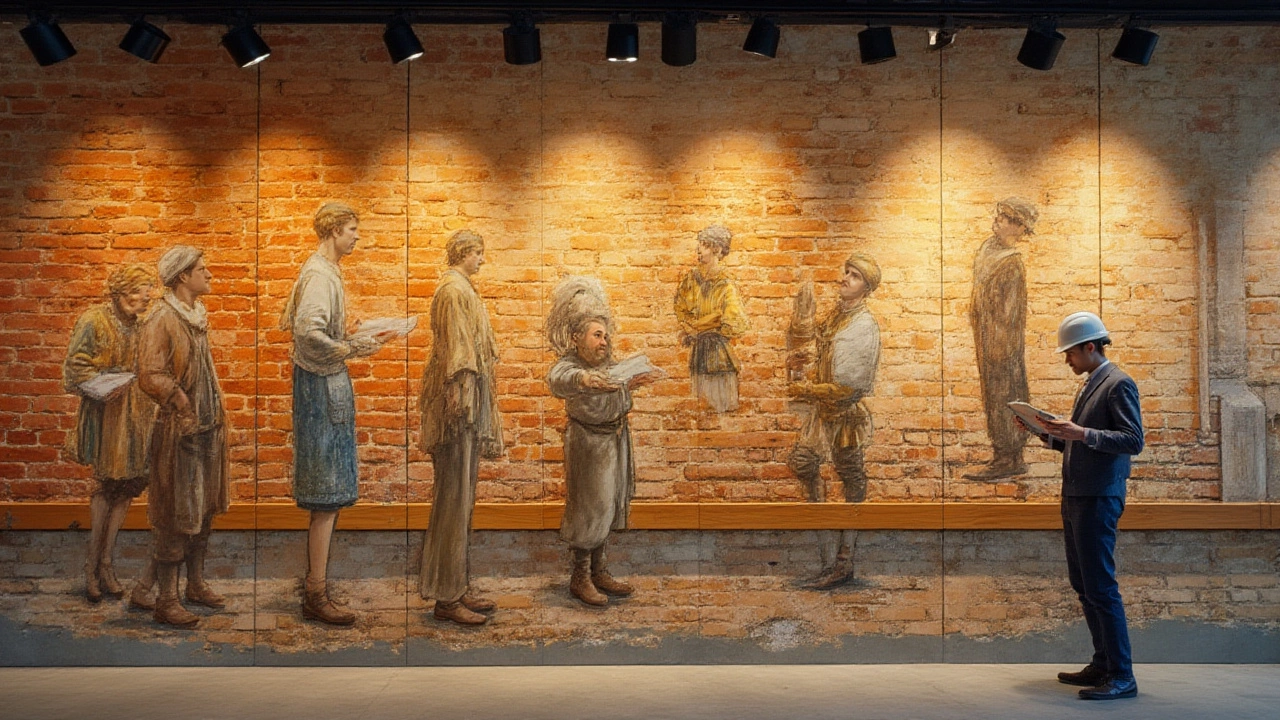Picture this: you’re finally ready to add that dream extension or build your house from scratch. Naturally, you search for a builder—someone with tools, a hard hat, and maybe a stack of bricks. But then every website, ad, and word-of-mouth recommendation keeps mentioning 'contractors.' It’s everywhere. Why is a builder, who’s laying bricks or pouring concrete, called a contractor? The answer isn’t just textbook semantics; it’s packed with history, legal twists, and real-world consequences that impact how your project gets done—and protected.
From Builders to Contractors: Tracing the Name Change
The story doesn’t start with fancy titles. It starts on dirt lots, in noisy workshops, and back in the days when people literally traded skills for chickens or sacks of flour. Early builders weren’t called contractors; they were masons, carpenters, or just 'that builder down the road.' So what changed? The word 'contractor' has roots in the Latin 'contractus,' meaning 'drawn together,' basically about making agreements. Fast forward to the industrial age, and construction jobs got too big for one person: cities wanted bridges, skyscrapers, roads, and more. Someone had to organize it all—hire teams, buy materials, keep track of costs. That’s where the contractor steps up, signing legal agreements (yep, contracts) that spell out what gets built, when, and for how much.
In the 1800s and early 1900s, Europe and North America saw a boom in buildings and public infrastructure. Governments and private clients started demanding written contracts to reduce the risk of shady jobs or builder disappearances. Laws evolved to protect everyone involved—especially the ones paying the bills. Once insurance, structure warranties, and safety codes entered the mix, being a builder wasn’t good enough. You had to be a contractor to get paid and avoid lawsuits. So, the title stuck. It’s not just about swinging a hammer anymore—contractors are organizers, legal representatives, and managers all rolled into one.
Even today, different countries and states may use 'builder' or 'contractor' with slightly different meanings. In Australia, for instance, 'builder' is the term for someone licensed to oversee complete construction projects, but in the U.S. and Canada, 'contractor' is the go-to word for the big boss. General contractors handle everything; subcontractors specialize (think: plumbing, electrical). The big takeaway? The word isn’t about who pours the concrete; it’s about who signs the contract and makes sure the job gets done—legally and safely.
Fun tidbit: the oldest surviving building contract dates back to ancient Mesopotamia, carved into a clay tablet. Even thousands of years ago, people needed to know who to blame if the roof leaked!

What Makes a Contractor Different Than a Builder?
This is where things can get confusing. Pop quiz: can a builder be a contractor? Can a contractor be a builder? Short answer: yes and yes, but not always. Here’s the difference: a builder is someone skilled in constructing things—walls, roofs, you name it. A contractor, on the other hand, is someone who takes on the legal responsibility of a construction project. If you hire a 'builder,' you might get Joe with a van and some tools. If you hire a 'contractor,' you’re getting someone who signs on the dotted line saying, “I’ll deliver your project—and you can hold me accountable.”
Let’s break it down with some real-world examples. Imagine you’re remodeling your kitchen. If you hire an individual to do the cabinets, lay tile, and wire the lights, that’s a builder—maybe even a subcontractor if they specialize. But if you want one person in charge of the whole shebang—getting permits, coordinating timelines, hiring all the right folks, sourcing materials, and managing risk—you need a contractor. Contractors often don’t do all the hands-on work themselves; instead, they assemble and manage a team, negotiate with suppliers, handle paperwork, and, importantly, carry insurance that protects both you and their workers if something goes wrong.
Here’s why the difference matters: qualified contractors usually carry liability insurance, worker’s comp, and may be bonded (meaning a surety company can step in if they disappear mid-job). If your builder cuts corners or skips out, you might be left in hot water—fixing legal messes or safety nightmares. Contractors, thanks to licensing requirements, are bound by codes and legal standards. That’s why you’ll often see people urging you to check a contractor’s license before hiring anyone for major work. In some places, hiring an unlicensed builder for jobs above a certain dollar amount isn’t just risky—it’s illegal, leaving you exposed if something goes wrong.
Quick tip for homeowners: Always ask for license and insurance details before signing anything. If your contractor’s reluctant to provide this, that’s a giant red flag. Another pro move? Ask for references from previous customers and call them. Don’t just read online reviews—those can be faked way too easily.
An added twist: niche builders like stonemasons or timber framers may still use the old-school title 'builder,' but if they’re taking on full responsibility for your project, they’re filling the role of contractor too, whether they use the title or not. The safest bet is to focus on the contract. If they hold the agreement and are on the hook to finish your job, they’re a contractor—plain and simple.
As the *construction industry* grew more complex, clear definitions helped everyone know who does what, especially with big budgets and high stakes. That’s why job titles mean something more than just bragging rights.

Tips For Navigating the World of Builders and Contractors
Let’s be honest: all these names, licenses, and contracts can feel like legal soup. But once you get a handle on the basics, protecting yourself and your wallet gets a lot easier. Here’s what I wish someone told me before I worked on my first home project:
- Always ask for a written contract. Never rely on a handshake or a verbal promise. A contract should list scope of work, timelines, costs (including hidden fees), materials, and payment schedules.
- Compare bids from at least three contractors before making a choice. The cheapest option is rarely the best. Pay close attention to wildly low bids, which usually mean corners will be cut or surprise costs will appear later.
- Review the contractor’s license status online. Most states and countries have searchable registries, so don’t just take their word for it.
- Make sure the contractor has builder’s risk and liability insurance. Ask for a current certificate and call the insurer to double check if you’re unsure.
- Look out for payment scams. Contractors should only ever ask for a reasonable deposit (usually around 10-20%), never full payment upfront.
- Install clear communication standards: set up weekly check-ins, sign off on completed work in stages, and document everything, even casual chats or extra requests. A good contractor is 100% transparent.
- Bonus tip: Don’t forget warranties. Quality contractors will guarantee their work in writing. Ask for details about materials and labor warranties—in case something breaks a year down the line.
If you’re taking on a big job (like building an addition or a whole house), consider hiring a general contractor, who acts like a project manager for your site. They’ll wrangle the plumbers, electricians, roofers, and more, keeping things smooth and legal. For smaller jobs, like cabinet install or a garden wall, a specialty builder or subcontractor could fit the bill — but always be clear about who’s responsible if things go sideways.
You might meet contractors who refer to themselves as 'builders,' especially if they want to play up traditional craftsmanship. Just don’t let the title fool you—ask what their role includes and what responsibilities they take on. It all comes back to the contract and the accountability it creates.
One more thing: In the digital world, shady operators pop up with impressive websites full of fake reviews and stock photos. So, double check registration numbers, check out completed local projects in person, and trust your gut. The best contractors take pride in their reputation—they’re happy to show off their work and answer your questions honestly.
So, next time you hear 'builder' and 'contractor' tossed around, you’ll know the difference runs deeper than just job titles. It’s about legal responsibility, risk, and trust—three things no construction project should ever take lightly.





